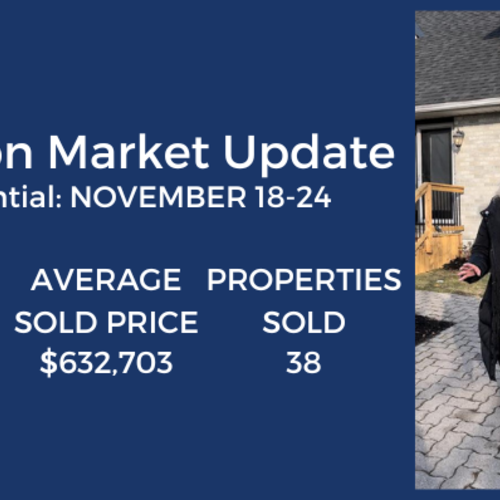Canadian mortgage rates have been low for some time now. The pandemic-era housing boom prompted some homebuyers to stretch their financing to the limit in order to be able to buy a home. Now that the boom has subsided considerably in recent months and interest rates are on the rise, the focus has shifted to the cost of holding a mortgage, and conversations on whether a variable- or fixed-rate loan is the way to go.
Since March, the Bank of Canada (BoC) has been on an inflation-busting crusade by raising interest rates, bringing the benchmark policy rate to a range of four per cent. While the central bank has signalled that it could be ready to slow down the pace of rate hikes to assess the consumer price index (CPI) and the broader Canadian economy, interest rates could still be going higher and continue to weigh on homeowners and homebuyers.
How much higher could mortgage rates go anyway? Market analysts have debated, but it might all depend on a few factors. Indeed, in the Canadian housing market, the interest rate behind a mortgage is determined by a couple of aspects that can send it higher or lower. So, for now, everything that is unfolding in the overall economy, financial markets and monetary policymaking apparatus is affecting how much homeowners are paying in interest on their mortgages.
Let’s go into a little more detail about how mortgage rates are set.
How are Canadian Mortgage Rates Determined?
Now, there are two types of mortgages: variable and fixed.
A fixed-rate mortgage is the most popular type of mortgage since it assigns a fixed rate during the term of the loan, meaning that borrowers will only need to focus on a predetermined monthly payment (principal and interest). The mortgage rate for a fixed mortgage is influenced by the central bank bond yields and broader changes in the bond market.
Financial experts purport that the five-year bond can generally provide a glimpse into where fixed rates may be heading. So, if the five-year bond yields are edging higher, fixed rates may emulate this trend. On the other side of the equation, if the five-year bond yields are down, this might signal that fixed rates will fall.
A variable-rate mortgage is a category of home loan whereby the interest rate is not fixed and is tied to the Prime rate, so the rate on a variable-rate mortgage will fluctuate whenever the Prime rate does. The mortgage rate for this product is tied to lender Prime rates, which are impacted by the BoC’s benchmark rate, also known as the overnight lending rate.
But how does the central bank influence fixed mortgage rates? Financial institutions acquire government bonds to generate a fixed-interest income. With that being said, fixed mortgage rates will compete with bonds to attract capital, so everyone will monitor bond yields to determine how high or low to establish mortgage rates.
“Remember that your lender’s funding cost determines most of the mortgage rate. The cost of funding jumped in the early days of the pandemic as investors became nervous. Many simply wanted to hold on to their cash given how uncertain everything was. So, the funding that is normally easy for lenders to get slowed to a trickle. This drove up the funding cost, even as the Bank of Canada’s policy interest rate fell,” the institution wrote in a May 2020 paper.
Small Changes Can Mean a Big Difference
Indeed, once you garner an elementary understanding of how Canadian mortgages function, you should obtain a measure of expectations about where mortgage rates could be in the next one, three, five or seven years. In other words, if you think rates are coming down, homebuyers may want to take advantage of a variable rate. However, if rates are only going higher for the foreseeable future, a fixed-rate mortgage may be preferable. Consult your financial advisor for advice specific to your situation.
The expectation has always been that the near-zero interest rates would increase eventually, but many were taken aback by how fast and furious they came. Unfortunately, many Canadians are feeling financially stressed about the current rising-rate climate, whether it is homeowners who now need to renew their mortgages or families that signed up for a variable-rate mortgage. From paying hundreds of dollars more to service the debt to not qualifying for a mortgage, Canadians may face some hurdles in the coming months. The good news, however, is that more investors are betting that the BoC will hit the pause button on its tightening cycle and potentially begin to slash rates later next year to support the economy.
Source: RE/MAX Canada


